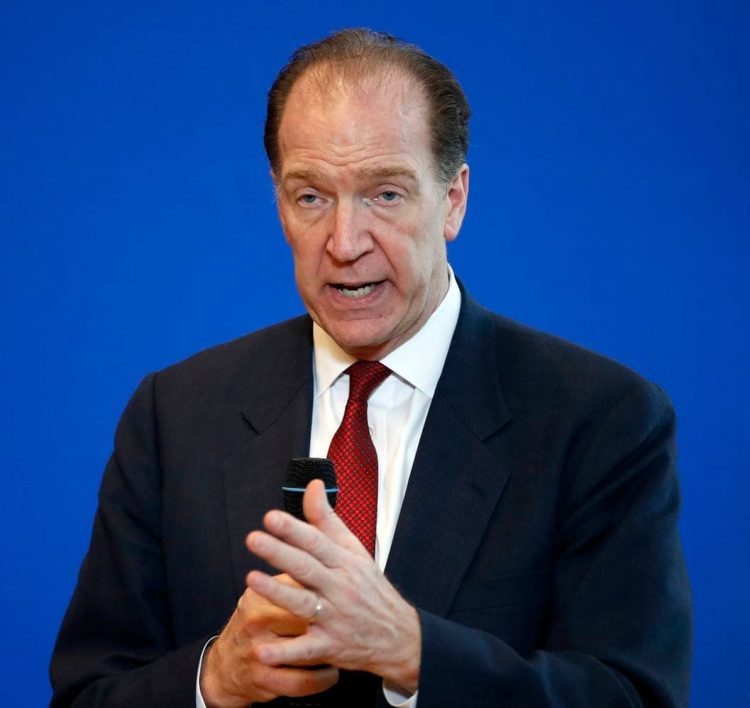The World Bank has said the international financial architecture, is skewed in favor of rich and creditor countries.
World Bank President, David Malpass spoke at the World Bank/IMF Spring Meetings 2021 Development Committee meeting, which ended on Sunday in Washington D.C.
He said the disturbing state of the global financial system was exposed in 2020 by the Covid-19 pandemic, which made challenges and staggering needs of every country’s economy even clearer.
“One major challenge is that the current international financial architecture is heavily skewed in favor of the rich and creditor countries. It is ever important that all voices are heard. I urge all of us to consider how we can restore growth in developing countries and help reverse the growing inequality, in terms of access to vaccinations, unsustainable debt, and adverse climate impacts,” Malpass said.
He said the world is today, developing a better line of sight forward, and the collective efforts to poverty, climate change, and inequality will be the defining choices of this age.
He added that now is the timeto move urgently toward opportunities and solutions that achieve sustainable and broad-based economic growth without harming climate, degrading the environment, or leaving hundreds of millions of families in poverty.
The World Bank chief said its confident Director-General, World Trade Organization (WTO) Dr. Ngozi Okonjo-Iweala would help facilitate effective global trade deals.
He said: “I would also like to acknowledge our former World Bank colleague, now Director-General of the WTO, Ngozi Okonjo-Iweala, who is joining us today. It is a point of pride that we have IMF Managing Director Kristalina Georgieva and Ngozi – two good friends and women who have previously been members of the World Bank team – leading our sister institutions and playing critical global roles in the development agenda today.”
Continuing, he said “I had the privilege of hearing strong presentations by both these women leaders at the IMFC meeting. With Ngozi as a champion, we’re looking forward to having a strong focus on trade facilitation and development in future Development Committee meetings.”
Malpass said the Development Committee plays an essential and unique role in the international cooperation architecture.
“I have said this before – it is the only forum in which the governments of developed countries and developing countries, creditor countries and borrower countries, come together with a primary focus development and resource needs for developing countries”.
He said the World Bank goal on COVID-19 was to act quickly and to help as many countries as possible to respond to the pandemic.
“These actions include new COVID-related emergency health programs in 112 countries, vaccination operations that we expect will reach $4 billion of commitments available in 50 countries by mid-year, and a quick doubling of our trade and working capital finance to help fill the banking vacuum that hit private sectors. In 2020, the World Bank achieved a record 65 per cent growth in commitments, Group-wide commitments topped $100 billion for the first time, and we expect this elevated level of delivery to continue in 2021,” he said.
He said the International Finance Corporation (IFC) and the Multilateral Investment Guarantee Agency (MIGA) maintained strong levels of investment in 2020, filling critical gaps in private sector financing, including short-term liquidity and trade, caused by the global recession.
He said the International Centre for Settlement of Investment Disputes has continued to ensure that international disputes under investment contracts, laws, and treaties are resolved effectively and impartially, which is key to mitigating risks that may otherwise deter much needed private investment for economic recovery.
On debt, he said he strongly welcome the G20’s decision on Wednesday to extend the DSSI to end-2021. “We are working closely with the IMF to support the implementation of the G20 Common Framework, as detailed in this joint paper. I welcome the clear statement in the G20’s communique that “the need for debt treatment, and the restructuring envelope that is required, will be based on an IMF/World Bank Debt Sustainability Analysis” as an input to the creditor committee deliberations”.



